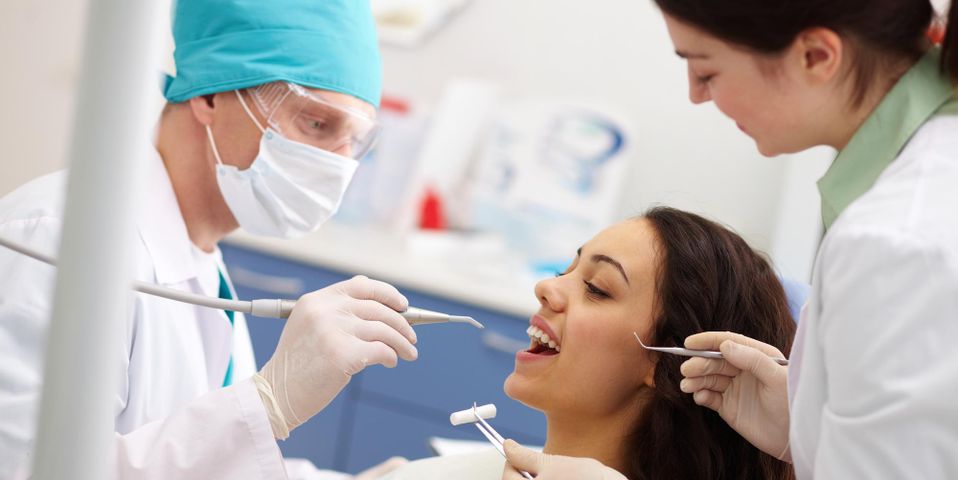
More than half of Americans over the age of 30 have bleeding gums, which is a sign of periodontal disease. This condition creates a painful and uncomfortable brushing and flossing experience, as the gums are tender to the touch and they may swell. Without preventive dental care, you could be facing a host of problems, including tooth loss. Below is a guide that details periodontal disease.
Periodontal Disease Questions, Answered
What is periodontal disease?
Periodontal disease is an infection of the gums, periodontal ligament, and the bone around your teeth. The infection comes from bacteria that builds up on your teeth in the form of plaque. For most people, this condition begins as gingivitis, an infection of the gums. Gingivitis symptoms include bleeding during brushing and cleanings in the dental office, as well as swollen and red gums. Without treatment, it can develop into periodontitis, which creates spaces between your teeth and gums and can cause tooth loss.
Who can get periodontal disease?
People who don’t practice proper oral hygiene or receive preventive dental care are at an increased risk. Certain people such as smokers and diabetics, as well as those taking medications that cause a dry mouth, have a greater risk of developing the disease. Genetics can play a role, too, as some people are more genetically susceptible to gum disease. Hormonal changes, such as those that take place during pregnancy and menopause, as well as diet and stress, can also increase the likelihood of gum disease.
Can you treat periodontal disease?
 The most common treatment is proper oral hygiene—daily brushing, flossing, and mouthwash designed to kill bacteria—and preventive dental care. Regular cleanings at the dental office remove hardened plaque, from the teeth to reduce the infection. In cases of more advanced periodontal disease, dentists may prescribe antibiotics to treat the infection or recommend Laser Assisted New Attachment Procedure (LANAP) to prevent tooth loss.
The most common treatment is proper oral hygiene—daily brushing, flossing, and mouthwash designed to kill bacteria—and preventive dental care. Regular cleanings at the dental office remove hardened plaque, from the teeth to reduce the infection. In cases of more advanced periodontal disease, dentists may prescribe antibiotics to treat the infection or recommend Laser Assisted New Attachment Procedure (LANAP) to prevent tooth loss.
Can you prevent periodontal disease?
Maintaining a healthy lifestyle, including not smoking, eating a healthy diet, and managing stress can also reduce the risk of developing periodontal disease. If you notice any changes to your teeth, such as bleeding gums, make an appointment with your family dentist to address the problem before it becomes more severe.
Preventive dental care is a key part of maintaining a healthy mouth and avoiding diseases that can lead to tooth loss. Families in the Rochester, NY, area turn to the dentists at Drs Emery & Scuro DMD, PC for all of their general, cosmetic, and laser dentistry needs. To make an appointment to take care of your smile, call (585) 247-7110 or visit their website to learn more about their services.
About the Business
Have a question? Ask the experts!
Send your question

